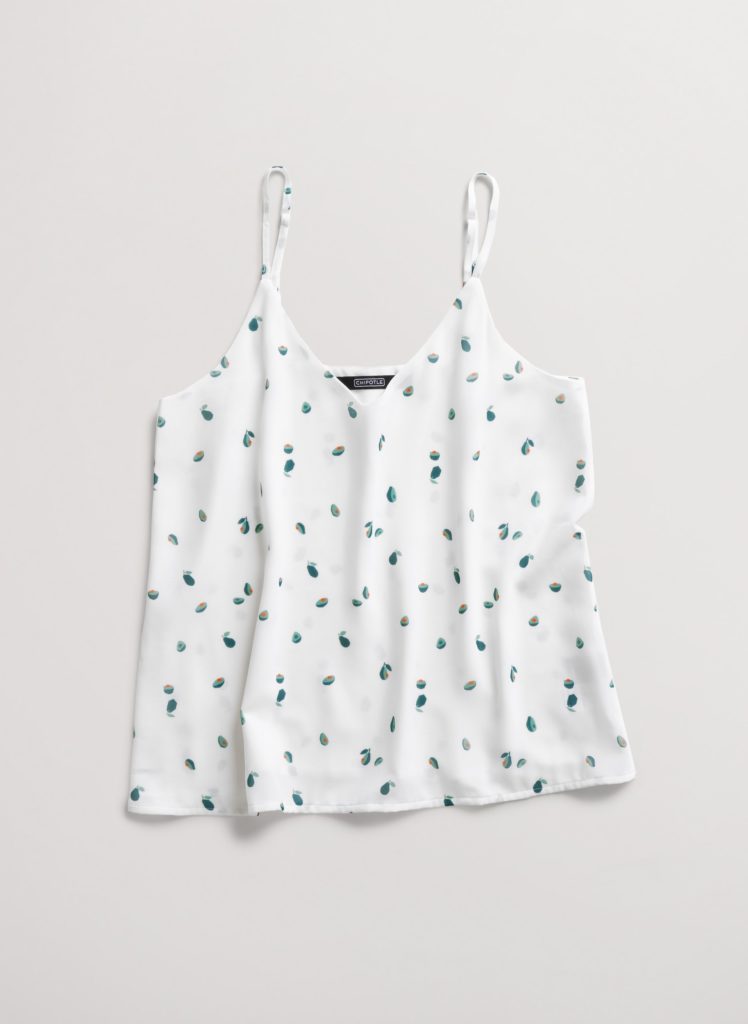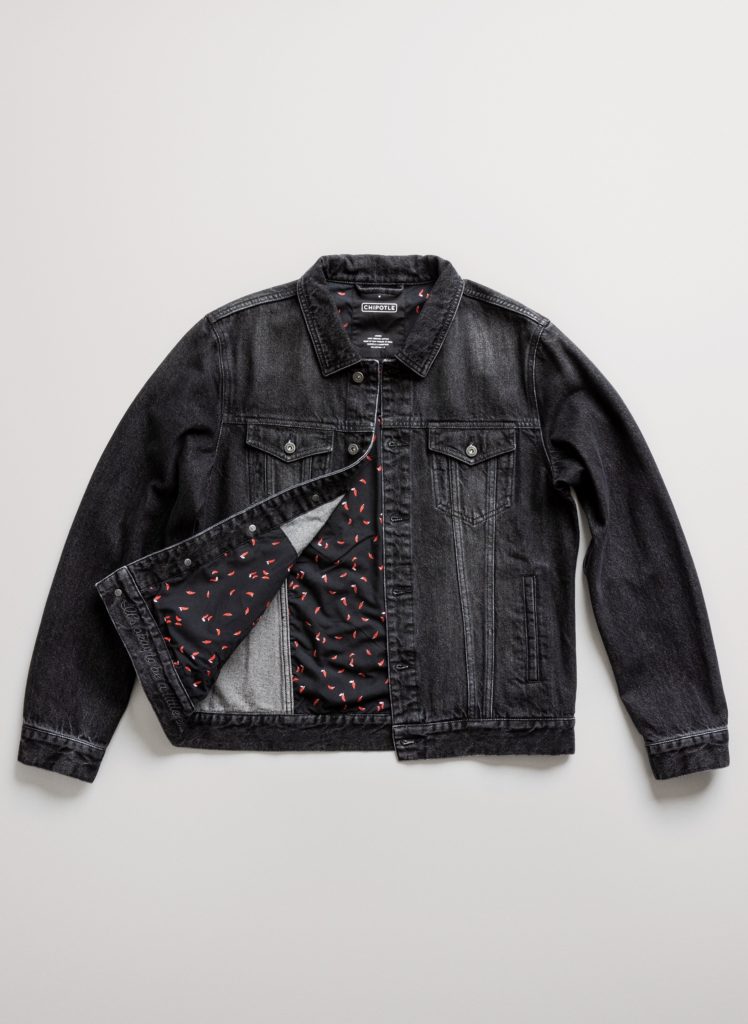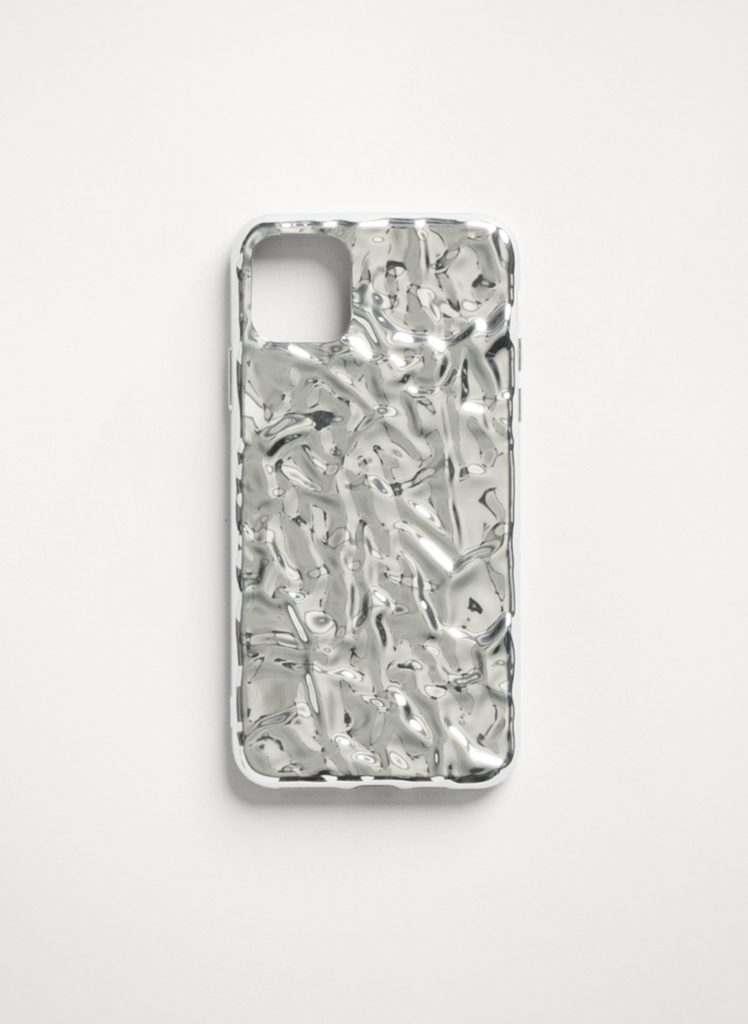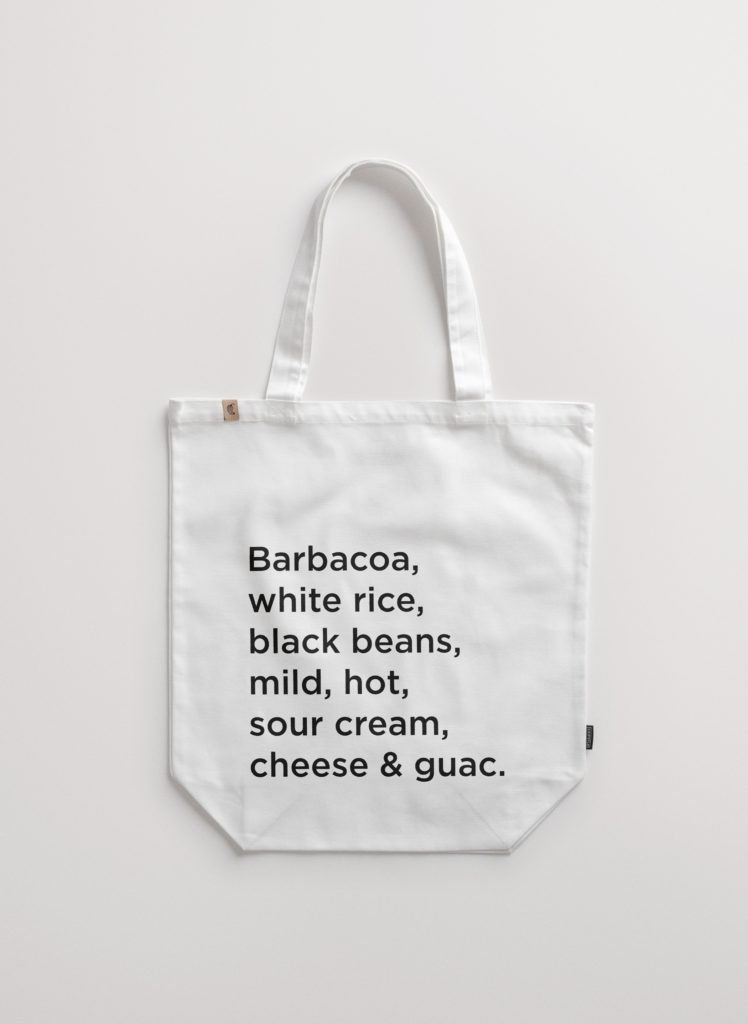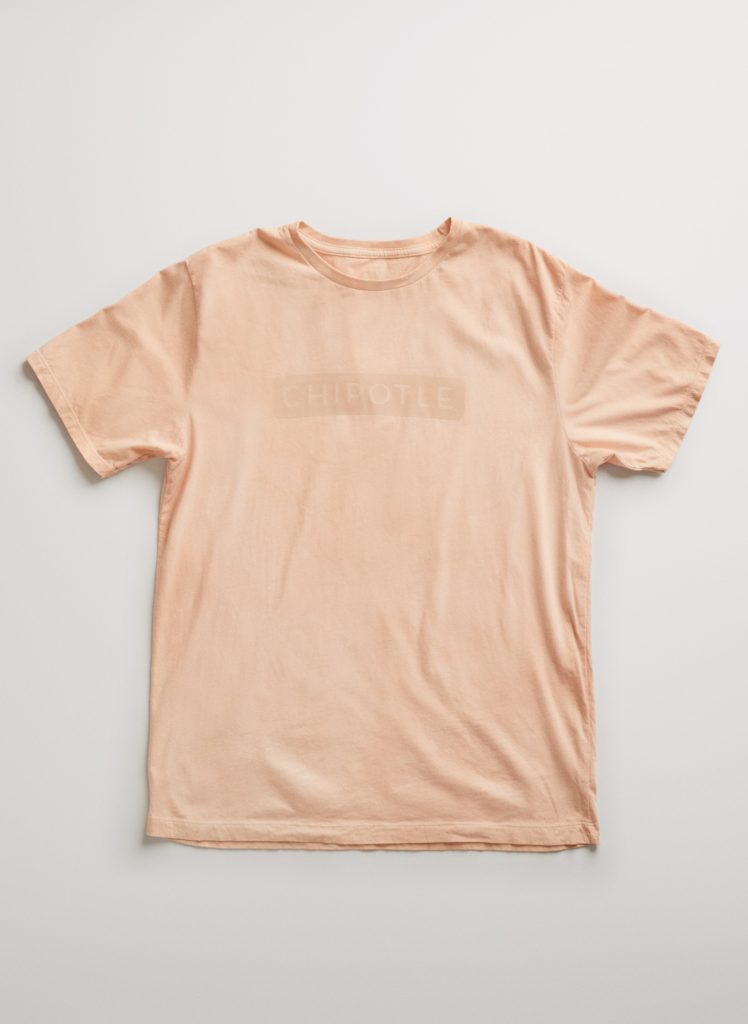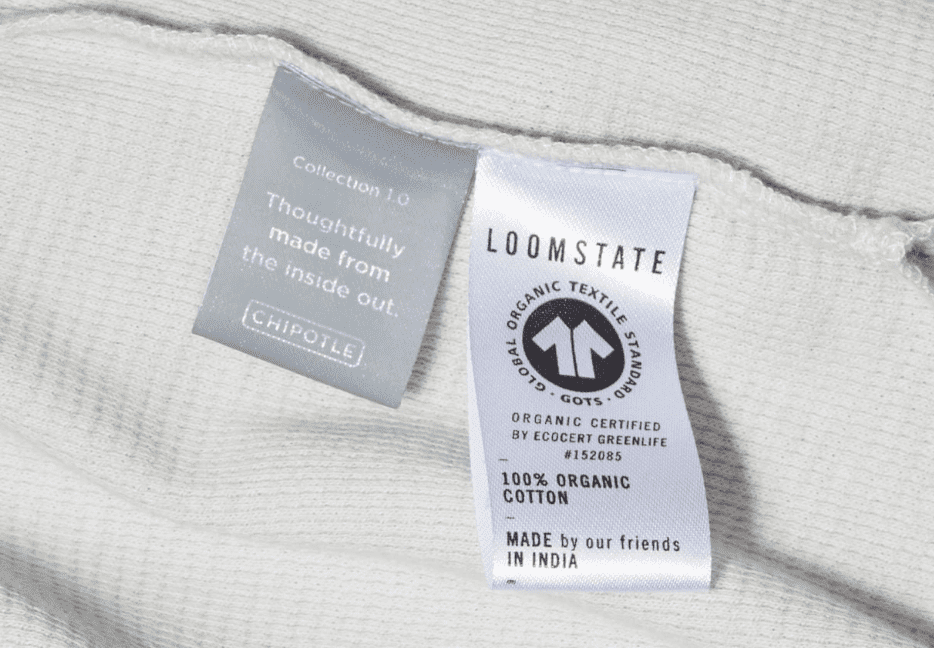
Chipotle Goes into Fashion: Apparel That is Trendy Yet Sustainable
As if Taco Bell’s wedding campaign last year wasn’t bizarre enough for the fast food industry, Chipotle recently shocked the fashion industry with “Chipotle Goods”. When most people think of Chipotle, aside from the fact that it is one of the largest fast food chains in the US, their deepest impression is that Chipotle’s guac is charged extra. Chipotle Goods consists of a line of clothing made of sustainably sourced materials which includes T shirts, jackets, baby clothes, activewear and accessories. Of course, the numerous avocado pits from Chipotle’s guac played a significant role in the production: natural dye.
Most of Chipotle’s products are made of organic cotton provided by Loomstate, with a few others made of 100% recycled polyester from plastic bottles. The designs are inspired by Chipotle’s chili pepper logo, chipotle’s branding and the ingredients used in orders, there are also several customizable products. The products are focused on size inclusivity, most of them being gender neutral. They range from $20 to $80, which is very affordable pricing for ethically produced fashion.
Chili Pepper print cami and denim jacket, all priced under $100
Burrito wrapping foil inspired phone case.
Customizable totes with consumer’s favorite ingredients printed on them.
The signature products are the avocado pit dyed T shirts and canvas totes. By boiling avocado pits, they generate a pinkish dye. The longer the pits are boiled, the darker the color will be, every dyed product will have a slight variation in tone, creating one of a kind garments. Chipotle is known to be the major customer of avocados compared to other restaurants. The frequent consumption of avocados results in the production of more avocado pits, which go into landfill since commercial compost isn’t available everywhere. According to a Chipotle spokesperson, “We started brainstorming ways we could use our avocado pits for good, and natural dye was something that kept coming up.”.
Avocado dye t-shirt.
Chipotle partnered with Textile Exchange, a global non-profit organization that identifies and shares best practices for ethical and sustainable farming, material processing, traceability and composting in order to reduce impact of textile waste on the environment. With this partnership, they are able to track production to make sure every step is transparent. According to Chipotle, all profits from Chipotle Goods’ sales are donated to charitable courses devoted to making apparel and food production sustainable. Farming and fashion are interconnected in some ways. Take cotton, a common fiber used in clothing and avocados for example. Both crops require a lot of water for their growth, the chemicals in the pesticides used can cause damage to soil and air. At the end of the day, most of the landfill is composed of food waste and excess clothing, contributing to the severe damage of the environment.
Organic cotton by Loomstate used in the production.
Chipotle quotes in their promotion for Chipotle Goods: “fans can now look as fresh as Chipotle’s real ingredients.” The introduction of Chipotle Goods is a sign that the company is showing awareness to environmental concerns and sustainability, the biggest problem heavily addressed in the recent years. Such a campaign is positive in bringing back customers for Chipotle who switched to other food options because of the reoccurring health concerns and unpopular new menu items, as well as re-branding Chipotle as a “green” brand that uses fresh ingredients and takes action to make its operation sustainable.
Sources:
https://chipotlegoods.com/pages/about-us
https://edition.cnn.com/2020/08/03/business/chipotle-avocado-clothes/index.html



